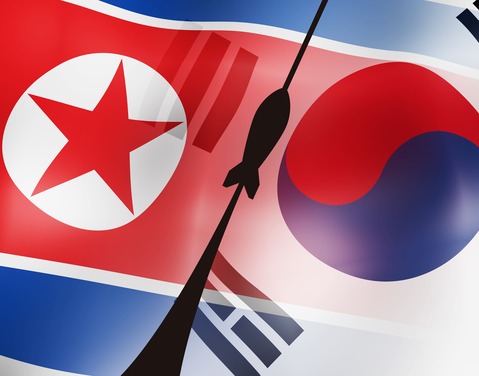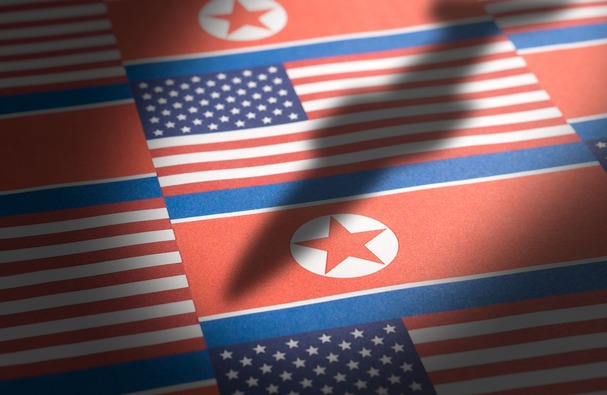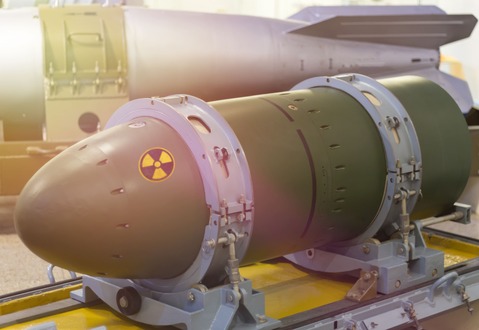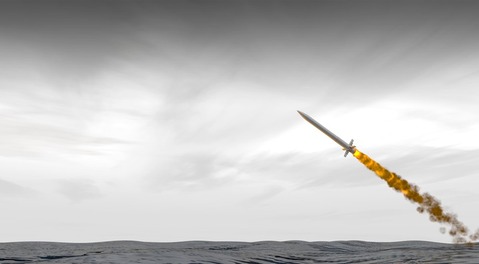- #North Korea
- #Nuclear & Missile Issues
- #Security & Defense
- #US Foreign Policy

►In 2022, there was a significant shift in North Korea’s nuclear doctrine as Kim Jong-un began to imitate Vladimir Putin’s nuclear gambits and renounce his country’s “no-first-use” policy toward nuclear weapons
►The unstoppability of North Korea’s testing campaign has generated active nuclear debates in South Korea, with politicians and pundits openly calling for South Korea’s nuclear weapons development or the United States redeployment of tactical nuclear weapons to South Kore
►It will be very important for the United States in such an instance to declare that North Korean nuclear coercion or deterrence-by-denial threats will not undermine U.S. extended deterrence commitments to Japan and South Korea.
If or when North Korea conducts its seventh nuclear test, there will be an inevitable cacophony of cries for the United States simply to give up on denuclearization and to accept North Korea as a nuclear weapons state. This is a bad idea. Here’s why.
The Buildup
In 2022, there was a significant shift in North Korea’s nuclear doctrine as Kim Jong-un began to imitate Vladimir Putin’s nuclear gambits and renounce his country’s “no-first-use” policy toward nuclear weapons. This started in late April when Kim Jong-un at a military parade said that North Korea’s nuclear weapons “can never be confined to the single mission of war deterrent” and warned of a preemptive nuclear strike if “any forces try to violate [North Korea’s] fundamental interests.” This was followed by North Korea’s decision to enhance the “operational capabilities of the front-line units” in June, hinting its intent to use tactical nuclear weapons against South Korea. In early September, North Korea passed new legislation to further cement the country’s nuclear power status and formally announced a list of conditions under which North Korea will carry out preemptive nuclear strikes. These conditions include traditional scenarios for justifying preemption including an imminent WMD attack, or a decapitation strike by the adversary. But the conditions also significantly expand to launching a nuclear first strike in the face of a “lethal attack on important strategic targets,” or “to seize the initiative in war escalation,” or “a catastrophic crisis” threatening the state or the people. Calling North Korea’s nuclear power status “irreversible,” Kim Jong-un made it clear that he will never give up nuclear weapons.
A series of North Korean escalations amplified pessimism in Seoul and Washington about the future denuclearization of North Korea. In 2022, the regime conducted at least 90 ballistic and other missile tests, including the test of the Hwasong-17 ICBM capable of hitting the United States on November 18, and ended the year with the first test of a new solid-fuel rocket engine at the Sohae testing site, which reportedly would advance solid-propellant ICBMs with an engine thrust of 140 tons of force based on the application of thrust vector control technology, foreshadowing what is to come in 2023 in terms of new capabilities.
The Breakfast Conversation
The unstoppability of North Korea’s testing campaign has generated active nuclear debates in South Korea, with politicians and pundits openly calling for South Korea’s nuclear weapons development or the United States redeployment of tactical nuclear weapons to South Korea. On a recent trip to Seoul with a CSIS delegation, we remarked how talk of a nuclear South Korea used to be something that came up after the third round of drinks after dinner. Now it’s the first topic of conversation at breakfast! In Washington, scholars and policy analysts also have begun to muse about the need to accept North Korea as a nuclear weapons state and start arms control talks with Pyongyang in order to manage and restrain its advancing missile and nuclear weapons capabilities.
Both ideas reflect deep and understandable frustration at the inability of U.S. and South Korean policy to put a halt to the North’s WMD threat after over three decades of negotiation, three failed agreements (Clinton’s 1994 Agreed Framework, Bush’s 2005-2007 Six Party Talks agreement, and Obama’s 2012 Leap Day Deal), and three failed summits between Trump and Kim. But it would be a fatal mistake to give up on the goal of denuclearization. There are no clear benefits to such a policy, and there are many downsides that will have profound negative policy implications.
First, to the extent that the two “breakfast” ideas are related, doing one would lead to the other. That is, the U.S. giving up on denuclearization as a stated goal of our policy would only lead to more, not fewer calls among South Koreans (and some Americans) for a nuclear South Korea. Second, U.S. acceptance of North Korea’s nuclear weapons status would be strongly opposed by U.S. allies, especially Japan, which has been critical to the Biden’s administration’s Indo-Pacific strategy, and would raise serious questions about U.S. extended deterrence commitments. Third, a de jure nuclear North Korea will permanently damage the nonproliferation treaty regime and could accelerate a nuclear arms race in Northeast Asia if the United States fails to provide its allies with other credible security assurances. It will also influence the nuclear ambitions of other countries like Iran.
Fourth, these rather weighty policy liabilities might be tolerable if the benefit were renewed negotiations with North Korea that would substantively reduce the threat, but the regime currently has shown no interest in dialogue whatsoever. Fifth, the U.S. can still engage in a discussion with North Korea on arms control and threat reduction while maintaining its goal of denuclearization. The two parameters are not mutually exclusive. Sixth, accepting North Korea’s nuclear weapons status, which would violate the 1992 Joint Declaration of the Denuclearization of the Korean Peninsula and other similar inter-Korean agreements, will make inter-Korean reconciliation even more difficult if the assumption is that true peninsular peace cannot come without the removal of all nuclear weapons.
Finally, to accept the North’s nuclear weapons status and expect that Kim Jong-un will remain rationally deterred flies in the face of what we are seeing in Ukraine. The fact that a nuclear weapons state is brandishing nuclear threats against a non-nuclear state and threatening potential use against NATO countries, should they intervene in the conflict, is ominous to say the least. This should make us less sanguine that a state as unpredictable and opaque as North Korea could be relied on to be a responsible and rationally deterred holder of these destructive weapons.
It is conceivable that the North Koreans perceive the bevy of missile testing this year, culminating with the seventh nuclear test in the foreseeable future, as cementing a position of strength from which they can respond to Biden’s many entreaties for negotiations. If a negotiation opportunity presents itself, the Biden administration can engage with the goal of denuclearization, while seeking incremental steps in stemming the program – many of which could be tantamount to steps taken in arms control (e.g., testing ban, fissile material production ban, nuclear operations freeze, etc.) The goals of denuclearization and threat reduction are not incompatible. It will be very important for the United States in such an instance to declare that North Korean nuclear coercion or deterrence-by-denial threats will not undermine U.S. extended deterrence commitments to Japan and South Korea.
Victor Cha is Senior Vice President for Asia and Korea Chair at the Center for Strategic and International Studies in Washington, D.C. He is also Vice Dean and Professor at Georgetown University. Ellen Kim is Senior Fellow and Deputy Director in the Korea Chair at CSIS.






